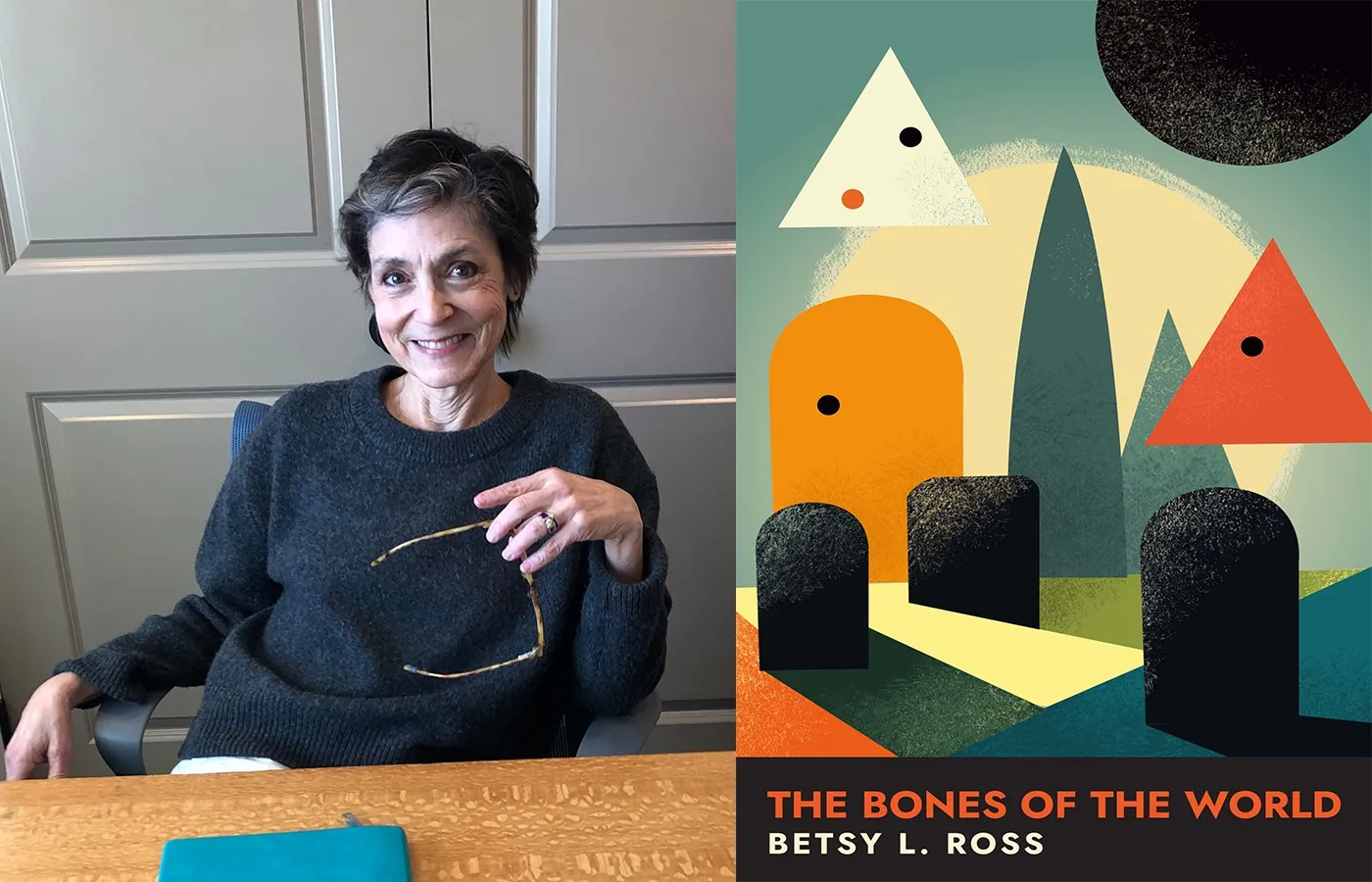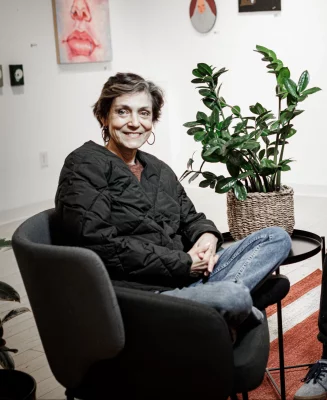
Through Suffering, Hope: The Healing Power of Betsy L. Ross’ The Bones of the World
Book
“If God is love, as so many say, how are we to understand suffering?”
This is the central question of Salt Lake City-based creative Betsy L. Ross’ debut novel The Bones of the World. Split between the Nazi occupation of Poland, the Inquisition of the Spanish Empire and the fascist America of tomorrow, Ross’ novel forces its characters to find meaning in a world of seemingly unrelenting hurt.
To describe the book as such makes it sound nothing short of devastating. While Ross’ prose does not pull any punches, the story is ultimately one of hope. “There’s a joy to [storytelling],” says Ross. While main characters Jakob, Sariah and Rachel each suffer heart-wrenching losses throughout the story, Ross focuses on the power of understanding their experiences, not on wallowing in their sorrow.
Ross herself is no stranger to loss. In 2012, her son David Ross Fetzer passed away of an accidental painkiller overdose. To help her discern what had happened, Ross first turned to filmmaking, an artform dear to her son. Writing and directing the film Looking for David, a documentary chronicling the events leading up to his death, offered Ross understanding and catharsis, propelling her on a journey of faith and insight. “The impetus for the book is definitely an exploration of suffering that came about because of my own. But then, how can one not know suffering in the world around us too?” suggests Ross.
“One of the things I [explored] was the gift of suffering,” she says. “You can’t say that without people looking at you.” As Ross explored the frontiers of grief, it occurred to her that she would never leave it behind if she did not choose to. She sought to explore “the transformation of suffering from pain to meaning.” After working to understand the microcosm of her own pain through the film and helping to establish the David Ross Fetzer Foundation for Emerging Artists, or the Davey Foundation for short, Ross looked back to her own Jewish heritage. Raised as a Reform Jew, Ross’s own upbringing was more focused on the cultural aspects of Judaism than the religious ones. Upon returning to this piece of her past, Ross found new sacredness. As she explored history and classical works of Judaism like the Kabbalah, Ross’ focus shifted from her own suffering to that more generally found throughout humanity.
“One of the things I [explored] was the gift of suffering…You can’t say that without people looking at you.”

In The Bones of the World’s near-future America, Rachel’s son is murdered by a far-right government and she is forced into hiding in an old mansion. There, she meets Eloise and Inés, a pair of sisters who introduce her to the mystical graveyard next door. The two also provide her with a special tea that gives her the ability to see the spirits who inhabit the graveyard and allows her to dream of her past lives as Jakob and Sariah. As Ross was writing the stories of these three characters, she “knew that not all of them could end well, nor should they.”
“[I] knew that not all of the[se stories] could end well, nor should they.”
Jakob is a Jewish teenager caught in the Nazi occupation of Poland. Sariah is a Jewish lesbian who must flee from Portugal to colonial Peru to escape the flames of the Inquisition. While the characters’ shared Judaism is critical to their lives and the novel’s themes, equally as important is the way each character differs from Rachel. Through Sariah’s position as a queer person and Jakob’s as a religious child, Rachel comes to better empathize with experiences different from her own, knowing that she is not alone in her pain.
As part of Eloise and Inés’ plans, Rachel is inducted as one of the Storytellers, a quasi-mystical group of semi-normal human beings who tell the stories of those who would otherwise go unheard (other named Storytellers in the book include Nawal el Saadawi and James Baldwin). As Rachel experiences the lives and stories of the unjustly deceased in the graveyard, she is able to understand that tragedy is an important—even necessary—aspect of the human experience.
Ross does not argue that tragedy is important for tragedy’s sake. Instead, she posits through Eloise that “stories…exist in our bones,” and that through telling our pains we pave the way for a better tomorrow. In her exploration of suffering and meaning through the characters of The Bones of the World, Ross does more than create an act of catharsis—rather, she provides a blueprint of hope. Through telling and listening to stories and sharing our pain while hearing others’, the world becomes a more just place.
Ross’ tale is a deeply affecting balm worthy of countering the malaise of the 2020s. To read it yourself, pick up a copy at your local bookstore or library or go to betsylross.com.
Read more features on books by local authors:
Local Book Review: Klamock
Utah Author Book Reviews: Dreamlives of Debris